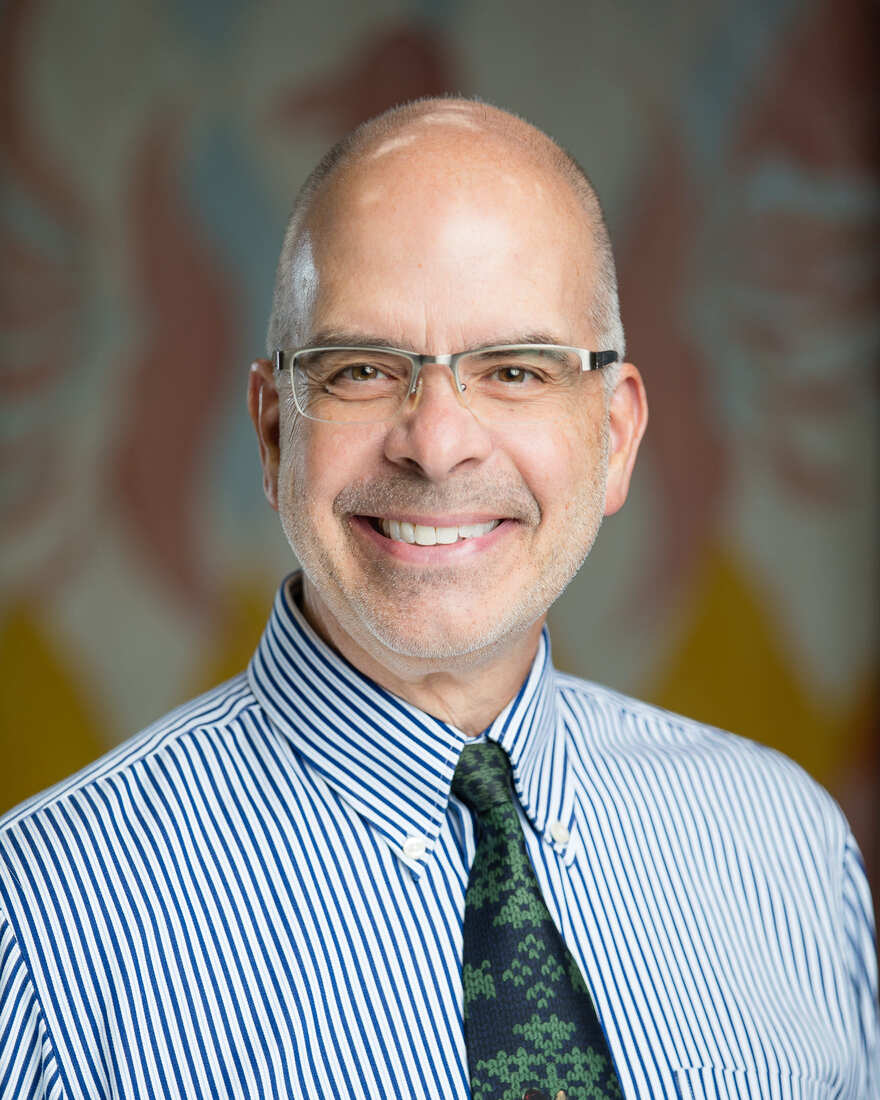The Heart of the Matter: Cell Phones in School
By Anthony Bocciardi, Upper School Assistant Principal & Math Teacher
Classical Christian education has several launching points. Whether it is curriculum, aesthetics, or classroom pedagogy there is a classical Christian distinction to be honed and pursued. But each aspect of the approach has a single purpose in mind: the proper formation of the student’s heart or character.
Scripture has much to say about the state of our hearts since the fall of our First Parents, and it is all quite bad. The heart is the seat of our passions and desires, and the governor of our choices. But it is the Prophet Jeremiah who tells us, “Thus says the Lord: …The heart is deceitful above all things, and desperately sick; who can understand it?” (Jeremiah 17:5, 9)
Paul goes even further in describing our situation prior to the sovereign regenerating work of the Spirit of God when he says frankly to the brothers and sisters in Ephesus, “As for you, you were dead in your transgressions and sins, in which you used to live when you followed the ways of this world and of the ruler of the kingdom of the air, the spirit who is now at work in those who are disobedient” (Ephesians 2:1-2)
Needless to say, our task to properly form students’ hearts and character is humanly impossible and necessarily requires divine intervention.

Yearbook & photography students work together on graphic design projects.
The heart is transformed by the Spirit of God alone, but Scripture continually calls us to actively tend to and care for our heart.
To this point, Solomon in the fourth chapter of the Book of Proverbs speaks directly when he exhorts us to, “Keep your heart with all vigilance for from it flow the springs of life…” (Proverbs 4:23). From our hearts flow our thoughts, words, and ultimately our deeds as well. These will be sweet unto life, or poisonous unto death; there is no in-between in the view of Scripture. It is thus vital to keep it with all diligence. In the verses that follow the author gives vital instruction for this purpose. He first warns us about our speech:
Put far away from you crooked and devious speech.
He then admonishes us to keep our eyes focused straight ahead in the forward direction, surely for the purpose of proper navigation through this world’s temptations. He finishes the chapter with the charge to ponder the path of our feet and keep from evil.
The three primary accesses to our hearts that need constant attention then, according to Solomon, are our eyes, our speech, and our deeds or actions.
Solomon’s charge was originally given to a young man, presumably his son (or sons). It is no surprise then that immediately following this instruction he warns them of the single greatest danger their hearts will face: the adulterous, or illicit, relationship. The author himself struggled mightily with this in his own life. He realized in his later years that even possessing transcendent wisdom did not make him impervious to temptation and that his heart was in need of ongoing assiduous care, especially in the area of his relationships.
As a math teacher I often tell my students that math, just like life, is about relationships. Mathematics is all about the relation between what is known and what is unknown. Determining those relationships is the quest of the mathematician and it is what makes doing math difficult.
In fact, relationships are difficult no matter the realm in which they are found. One of the tragic effects of the Fall of Adam was a profound alienation that we now experience not only with our Creator but with the rest of Creation as well.
Paul makes this clear in his letter to the Ephesians in 4:18. Speaking of the Gentiles, he writes, “They are darkened in their understanding, alienated from the life of God because of the ignorance that is them, due to their hardness of heart…” At the end of the chapter, he outlines how we ought to live, in Christ, with each other and with the culture around us. The hallmarks of this life are:
- speaking truth and edification
- the quick resolution of disputes
- honest labor
- charitableness
- not grieving the Spirit
- being kind, tenderhearted, and forgiving
- ridding ourselves of all the behaviors that destroy relationships with each other as well as our neighbors
Paul’s list to the believers at Ephesus compliments, in both a positive (Do) and negative (Don’t do) sense, the exhortations of Solomon in the guarding of our hearts and the reorienting of our relationship with God and men alike.
Our natural incapacity for maintaining proper relationships as described by Paul is corrected summarily by putting, “…off your old self which belongs to your former manner of life…” and being renewed, “…in the spirit of your minds.” This renewal Paul describes as the putting on of the, “new self, created after the likeness of God in true righteousness and holiness” (Ephesians 4:22-24). This action is the human side of our sanctification. We are responsible to be engaged in this whole process of becoming more like Christ.

High school students use laptops to work on their Senior Thesis presentations.
The Scriptures provide us then with a clear foundation and direction for the training of disciples in the area of Christlikeness.
Everything done at Providence Classical School in the name of classical Christian education has as its purpose the formation of the hearts of our students. It is our desire that each student we serve will graduate not just with knowledge, but also with the ability to communicate it while reflecting godly character and discernment.
This will be seen most vividly in the nature of the relationships that students form and cultivate over the course of their lives. Toward this end we aim to set in place policies and practices that encourage and strengthen students in their present and future relationships both within and outside our community.
Policies regarding the use of electronic technology, in particular those devices that allow access to the internet, reflect this commitment.
We recognize unregulated internet access would be irresponsible and even detrimental to the purpose of shaping hearts.
We now live and work in a much smaller world than that of the generation before us, made so by the internet and the speed at which information travels. And this world will shrink by magnitudes in future generations. Self-discipline and discernment are needed in order to navigate cyberspace for adults, let alone for young people, making the challenge of crafting a beneficial policy all the more difficult.
Light-speed access to words and pictures is even more prone to be used for destructive reasons due to the subjective and internal effects that these have on people. Most are familiar with the trappings and pitfalls of social media and thus the need to guard our eyes and ears as the gateways to our hearts, as Solomon would certainly advise.

Middle school students work on laptops in their Keyboarding/MS Office elective.
But we don’t merely take a negative approach to establishing guidelines for proper tech use here on campus. It would be unbalanced and less than wholly biblical to do so.
We recognize the good that can come from the use of a cell phone. Upper School students are allowed to use their phones before and after school hours while on campus. If we were solely concerned with the dangers of internet and cellular access, we might ban such devices from campus altogether. And while the harmful effects of a poorly worded post or the imprudent uploading of a candid photograph are undoubtedly real, they do not alone inform nor shape our making of policy.
Technology instruction is an important and measured part of the complete education students receive at Providence Classical School. Beginning in 7th grade, students have the option to learn typing and Microsoft Office. They can learn photography, videography, and graphic design in Yearbook. Rhetoric School students may use laptops for classroom assignments and presentations and can take Computer Science and other tech-related electives. Preparing students for the realities of our technology-driven world is critical to setting them up for a successful future, so long as classroom technology is used appropriately.
Solomon warns us to guard our hearts by standing vigilant at the ports of entry, that is, our eyes, ears, and mouths. But he does so to encourage the godly and edifying relationships that Paul expounds upon a thousand years later.
We desire that our students be the salt and light of the world that God has called them to be.
It is unchristian to hide or escape from the world in an attempt to guard our hearts and pursue a pseudo-holiness. Paul assumes as much, as his enjoinders to the saints in Ephesus mentioned above indicate. The use of electronic devices should therefore foster our relationships with one another in the various spheres in which we interact.
A student’s use of his or her cell phone during the school day would in no way promote community and relationships among his or her classmates. Peer relationships require a significant amount of time and energy that is easily flitted away on a personal electronic device.
The regular habit of this denial would also encourage those relationships outside of the immediate school community. Relationships with parents, siblings, teachers, employers, and those within the broader community are fostered indirectly by this act of personal discipline.
In that same letter to the Ephesians Paul describes the state of these Gentiles prior to their being made alive in Christ as being “far off,” strangers, and aliens. According to the author they were outside the fellowship of the people of God. But now in Christ, they are, “citizens with the saints and members of the household of God” (Ephesians 2). We, as Gentile believers, now live as part of a divine community knitted together by the Spirit with a typifying conduct.
This takes work and practice and a maturing attitude of self-denial.
Needless time spent on an electronic device does little to nothing for fostering a selfless attitude but is more likely to encourage an unhealthy inwardness and a loss of the identity that we have in Christ. It is our hope that each member of the PCS community would set aside every weight in the pursuance of healthy relationships so that we may impact all those within for the advancement of Christ’s Kingdom.

About Anthony Bocciardi:
Upper School Assistant Principal Anthony Bocciardi joined the Providence Classical School family in 2022. Mr. Bocciardi also teaches Algebra II with Trigonometry, as well as College Algebra. He holds a B.A. in mathematics from the University of Michigan, an M.A. in mathematics from Eastern Michigan University, an M.Div. from Reformed Theological Seminary, and an M.Ed. in leadership from Covenant College. He has taught high school math and science for a total of 31 years, taught at a community college for 12 years, and has 2-1/2 years of experience in church administration. Anthony and his wife, Terri, have been married for 31 years and have 4 children and 6 grandchildren. They also have a standard poodle named Bo and a cat named Oliver. When he’s not busy with his grandkids, Anthony loves talking about systematic theology and Michigan football!
For more information on how Providence Classical School can help you shepherd the heart, mind, and body of your child, watch our videos and schedule a tour with our Admissions Director today!
Continue reading the PCS Blog for more on technology and parenting!
Header image by Ridofranz on iStock.








